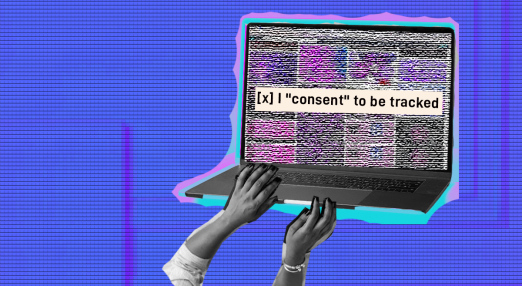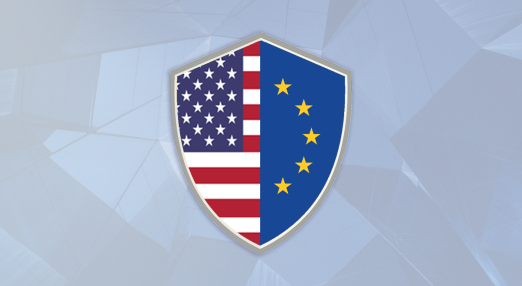Our work
EDRi is the biggest European network defending rights and freedoms online. We work to to challenge private and state actors who abuse their power to control or manipulate the public. We do so by advocating for robust and enforced laws, informing and mobilising people, promoting a healthy and accountable technology market, and building a movement of organisations and individuals committed to digital rights and freedoms in a connected world.
Filter resources
-

Get your extra reading on “cookie consent” and AdTech done
On 22 February, the Belgian Data Protection Authority (DPA) made a decision regarding complaints about the Internet Advertising Bureau Europe (IAB Europe) "consent framework". This is a commonly used cookie pop-up asking for "consent" to be tracked.
Read more
-

“Privacy Shield 2.0”? – First Reaction by Max Schrems
On March 25 Commission President Ursula von der Leyen and President Biden have announced an "agreement in principle" on a new EU-US data sharing system.
Read more
-

The Domino Effect of Internet Blocking in Romania
The Council of the European Union’s decision, which came out on 1 March, to block access to the media outlets Russia Today (RT) and Sputnik, looking to stop the spread of disinformation, set forth a domino effect in Romania for internet blocking.
Read more
-

Spying on couriers and AdTech using data from operators. We know the winners of the Czech Big Brother Awards
For the seventeenth time has the Czech NGO and EDRi member Iuridicum Remedium (IuRe) awarded Big Brother Awards to those who have been snooping the most into our privacy in the past year.
Read more
-

EDRi statement: the fundamental rights consequences of the EU media ban
European Digital Rights (EDRi) is appalled by the illegal and atrocious invasion of Ukraine by Russia’s totalitarian regime. We stand with the people of Ukraine who are forced to live in fear and flee from their homes while enduring war crimes and other large-scale human rights violations, including cyberattacks. Democratic societies that respect the rule of law should stand in solidarity with the deep suffering of people in Ukraine on many levels.
Read more
-

France must not betray European citizens on the DSA at the 11th hour
As civil society, we welcomed Minister Cedric O’s commitment on Friday to prohibit targeted advertising to minors as well as the use of sensitive data for ad targeting in the DSA. Now the French Council Presidency must follow through and protect citizens, 35 NGOs write in an open letter.
Read more
-

The Digital Markets Act promises to free people from digital walled gardens
Last night, 24 March, the European Union made a great step forward to better protecting our rights online as it approved the political trilogue compromise for the Digital Markets Act (DMA). This decision promises to challenge the strongly centralised environment of Big Tech platforms exerting too much power over our rights and over the flow of information in society. Tech companies like Facebook, Google, Amazon and Apple will have to start following strict rules that ensure free and fair competition in the digital markets.
Read more
-

EU AI Act needs clear safeguards for AI systems for military and national security purposes
EDRi affiliate ECNL presents the second set of their proposals on exemptions and exclusions of AI used for military and national security purposes from the AIA, also endorsed by European Digital Rights (EDRi), Access Now, AlgorithmWatch, ARTICLE 19, Electronic Frontier Finland (EFFI), Electronic Privacy Information Center (EPIC) and Panoptykon Foundation.
Read more
-

EDRi-gram, 23 March 2022
In this edition of the EDRi-gram, we look at the leaked opinion of the Commission which sets off alarm bells for mass surveillance of private communications. The newly-revealed opinion confirms the fears that EDRi and 39 other civil society groups recently raised about the proposal which could destroy the integrity of private online communications across the EU, and set a dangerous precedent for the world. We are also urging for real solutions to the flaws of the law guarding our data protection and privacy. Though a new record of high fines based on the GDPR was issued in 2021, people still face barriers to exercising rights like access to remedy and benefiting from a harmonised enforcement mechanism.
Read more
-

Not everything is allowed in politics: Upcoming political advertising legislation must introduce limits
In November 2021, the European Commission launched a proposal for a regulation on the transparency and targeting of political advertising. The document will place harmonised rules for more transparency of political advertising to facilitate the sector’s internal market. Now, it is the European Parliament’s turn, specifically the IMCO (Internal Market and Consumer Protection) Committee to lead the legislative process.
Read more
-

Promoting human rights in the digital era
Digital technologies are part of everyday life, but we don’t know much about how they impact our rights. A Czech-Norwegian project aims to change this.
Read more
-

Propaganda cannot be silenced with censorship, freedom of expression can
By order of all governments in the European Union, internet providers and platforms are blocking access to Russian state media. However, European governments would do better to stimulate the independent media in both Russia and Ukraine.
Read more
